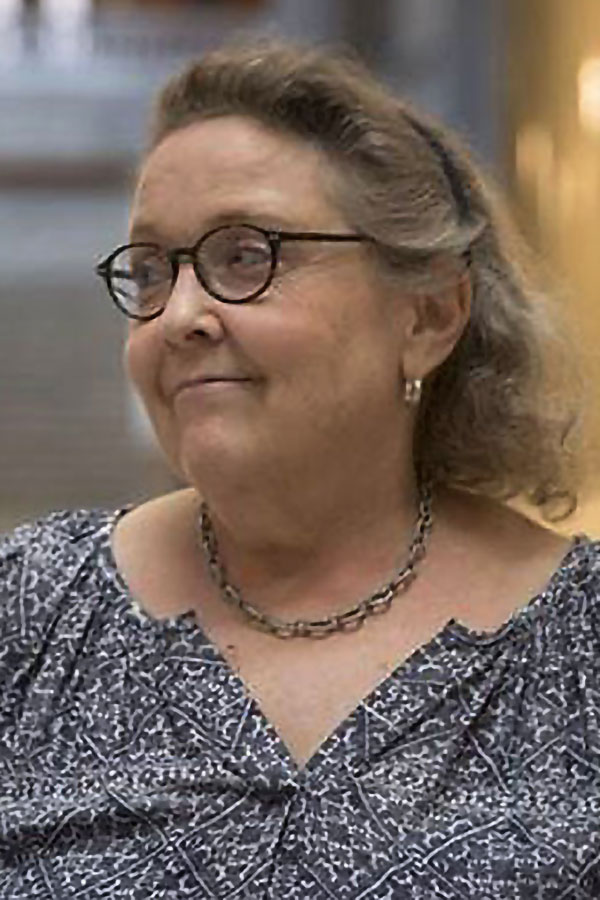A Kentucky lawmaker says he plans to revise a bill rewriting the state’s open records law after it ignited protests from open government advocates and the Kentucky Press Association who warned it would “eviscerate” access to public records.

Rep. John Hodgson, R-Fisherville, said in an email he plans to eliminate a section redefining public records after hearing from advocates he had challenged to provide examples of how House Bill 509 would block access to government information previously considered public.
“A number of involved private citizens and constituents took me up on that offer and we had some very constructive dialog about dozens of specific examples in their experience base,” Hodgson’s email said.
Among Hodgson’s promised changes : HB 509 would no longer try to shield personal cell phones and emails of state employees or board and commission members when used to conduct official business.
That comes amid an ongoing court battle over access to such communications from the Kentucky Fish and Wildlife commission by a group seeking texts or emails related to the 2021 controversial contract renewal of Rich Storm, its executive director.
At the time, the nine commission members, appointed by the governor to oversee the state agency, did not have official email or cell phones. They now have state email accounts but use personal phones, according to the commission website.
Amye Bensenhaver, co-director of the Kentucky Open Government Coalition, which filed suit over access to records related to Storm’s contract, greeted the proposed changes to HB 509 with relief, calling it a “teachable moment.”
“I hope the coalition helped by explaining to them how the changes to the definition of public record were destructive of existing public rights,” she said in an email.

Michael Abate, a First Amendment lawyer who represents the press association and the Open Government Coalition, also welcomed Hodgson’s proposed changes.
The coalition maintains — and the courts so far have ruled — that communications about public business, even if on personal accounts or devices, are considered public records, Abate said.
“We would strongly oppose making those off-limits,” Abate said in an email. “If public business is being conducted, citizens have a right to see it regardless of where it is being done.”
Fish and Wildlife lawyers have asked the state Supreme Court to review an October decision by the Court of Appeals in favor of the Open Government Coalition’s access to the cell phone and email records involving commission business.
As for changes to HB 509, Hodgson said he plans to eliminate a section of the bill that imposed new limits on what constitutes a public record and leave only the first section of the bill that requires state email accounts for state employees and members of boards and commissions. It would require those individuals to use those accounts for any public business conducted through email.
Hodgson said that requirement should protect “privacy rights of individuals with their personal cell phones and emails.”
- SUBSCRIBE: Sign up for our newsletters
The proposed changes would no longer bar access to information on a phone or email account that is the “personal property” of current or former employees, board members or others who served in an official position, as the original bill does.
In filing HB 509, Hodgson cited concerns about the pending Supreme Court case that could put all “executive branch employees at risk for losing their personal privacy regarding text messages and emails on their personal devices.”
Abate said the court case has never been about getting private information from state officials.
“The Fish and Wildlife case has never required anyone to turn over their personal messages, or their devices,” Abate said. “It simply requires public officials and employees to search for and produce any government documents they choose to create on their personal phones or devices.”
Concerns date to 2019 hiring of Fish and Wildife chief
That case dates back to 2021 after the commission voted to award a four-year, $140,000 contract to Storm as executive director of the agency amid a dispute with Gov. Andy Beshear, a Democrat, whose administration had stopped payments to Storm under his previous contract.

Storm was named executive director in January 2019 under the administration of former Gov. Matt Bevin, a Republican. His selection came after the commission voted to bypass other candidates for the job and hire Storm, who previously served as one of the volunteer commissioners including as chairman.
In January 2020, the commission voted to extend Storm’s contract for two years. By then, Beshear was in office and objected, citing multiple critical audits of the agency including one in 2018 by state Auditor Mike Harmon, which recommended a “change in culture” at the agency.
The commission’s role, under state law, is to keep a “watchful eye” on the Fish and Wildlife Department, which oversees about $68 million a year in funds generated from hunting and fishing licenses and federal grants. It represents about 800,000 sportsmen and women statewide.
The ongoing dispute over Storm’s contract attracted attention of critics of the commission including Brian Mackey, a Hardin County farmer and longtime sportsman.
In 2021, Mackey filed the original records request, seeking to learn more about the commission’s 2020 decision to renew Storm’s contract.
Since the commissioners at that time didn’t have state cell phones or email addresses, he filed an open records request asking for such information from their personal cell phones or email accounts related to the contract.
“All this stuff made me wonder what’s going on here,” he said. “My gut was telling me these people have got to be talking about this.”
Fish and Wildlife denied his request. Mackey did not pursue the case after then-Attorney General Daniel Cameron ruled in favor of Fish and Wildlife, saying they did not have to produce the records.
But the Open Government Coalition then took up the case, pursuing the current legal challenge.
In October, the state Appeals Court issued a 32-page opinion finding such communications about Fish and Wildlife business clearly are public records — even if conducted on personal cell phones or email accounts.
To hold otherwise, the opinion said “would certainly defeat the purpose of the Open Records Act as public officials could easily evade disclosure of public records by simply using their personal cell phones.”
“Additionally, in this case, commission members were not provided with official email accounts or cell phones, thus necessitating the use of their personal phones for commission business,” it said.
Mackey, who served seven months on the commission, until the Senate — at the urging of Senate President Robert Stivers, R-Manchester — refused to confirm him in 2022, said his concerns with the commission go beyond Storm’s contract.
“They’re kind of a rich, good old boys club,” said Mackey who said he questioned the lack of detail in financial statements and other items the commission was routinely asked to approve.

Stivers, in urging Senate members to reject Mackey, argued he was a disruptive influence at the Fish and Wildlife commission, which he defended as a vital body that effectively oversees hunting, fishing and wildlife protection in Kentucky.
“I cannot in good conscience say this individual should be confirmed,” he said.
Mackey said he still follows commission business and attends its quarterly meetings.
As for Hodgson’s proposal to revise HB 509, he said he’s encouraged but waiting to see the final version of a bill co-sponsored by House Speaker David Osborne, R-Prospect and Rep. Jason Nemes, R-Middletown, the House majority whip.
The House and Senate are controlled by Republican supermajorities.
“Hodgson may be trying to fix it but if the GOP really wants this to become law, they’ve got the ability to change it at the 11th hour,” Mackey said.
This article is republished under a Creative Commons license from Kentucky Lantern, which is part of States Newsroom, a network of news bureaus supported by grants and a coalition of donors as a 501c(3) public charity. Kentucky Lantern maintains editorial independence. Contact Editor Jamie Lucke for questions: info@kentuckylantern.com. Follow Kentucky Lantern on Facebook and Twitter.






